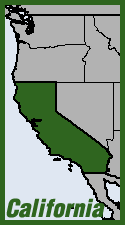 The California Attorney General's Office sent a team to the Emerald Triangle's Siskiyou County in the prelude to the June 7 primary election, following reports of armed men from the sheriff's department intimidating members of the county's Hmong community—including menacing some at gunpoint. Sheriff Jon Lopey said the deputies were mobilized as part of an investigation into voter fraud, and had to be armed because of rifle-toting cannabis growers in the areas. But the investigation seems to have exclusively targeted Hmong residents—some of whom were falsely informed that it is illegal for them to vote. Janelle Vang, a representatve for the county's Hmong community, told the Redding Record-Searchlight many residents did not turn out at the polls because they feared they would be arrested. There was speculation that Lopey sought to suppress turn-out for a measure on banning outdoor cannabis cultivation. The county council approved the ban last year, but opponents forced a ballot measure on the question and were mobilizing for a "no" vote. The ban was indeed approved, although Lopey denies his action affected the outcome—as well as denying any wrong-doing.
The California Attorney General's Office sent a team to the Emerald Triangle's Siskiyou County in the prelude to the June 7 primary election, following reports of armed men from the sheriff's department intimidating members of the county's Hmong community—including menacing some at gunpoint. Sheriff Jon Lopey said the deputies were mobilized as part of an investigation into voter fraud, and had to be armed because of rifle-toting cannabis growers in the areas. But the investigation seems to have exclusively targeted Hmong residents—some of whom were falsely informed that it is illegal for them to vote. Janelle Vang, a representatve for the county's Hmong community, told the Redding Record-Searchlight many residents did not turn out at the polls because they feared they would be arrested. There was speculation that Lopey sought to suppress turn-out for a measure on banning outdoor cannabis cultivation. The county council approved the ban last year, but opponents forced a ballot measure on the question and were mobilizing for a "no" vote. The ban was indeed approved, although Lopey denies his action affected the outcome—as well as denying any wrong-doing.
"There is no voter fraud occurring among the Hmong community in Siskiyou County," Brian A. Ford, an attorney representing members of the Hmong community, was quoted by CannaBusiness Law website. "The fact that officials of the County government carrying assault rifles are making these representations to American citizens, some who fought proudly for this country—it simply shocks the conscience.
Raw Story notes that Sheriff Lopey is active in the right-wing Oath Keepers and Sagebrush movements.
The Hmong are indeed in an ironic position. Hmong militias fought alongside US Green Berets against the communists in Laos in the 1960s. They are traditional opium-growers, and their opium trade was encouraged by the CIA and Pentagon to fund the secret war against the Laotian communists, according to Alfred McCoy's classic study, The Politics of Heroin in Southeast Asia. After the communist take-over of Laos in 1975, many Hmong came to the US—with the two biggest communities being in Minneapolis–Saint Paul and the central California town of Fresno. But in recent years they've started to move into California's cannabis biz—leading to local fears of a Hmong "mafia" dominating the trade in some areas, and consequent ethnic tensions.
Meanwhile, not surpirsingly, the Hmong continue to face persecution and marginalization in Laos. Many still languish as refugees across the border in Thailand's hill country.
Cross-post to High Times







Recent comments
3 weeks 4 days ago
3 weeks 4 days ago
6 weeks 5 days ago
7 weeks 4 days ago
11 weeks 4 days ago
15 weeks 3 days ago
19 weeks 3 days ago
20 weeks 1 day ago
30 weeks 1 day ago
34 weeks 2 days ago